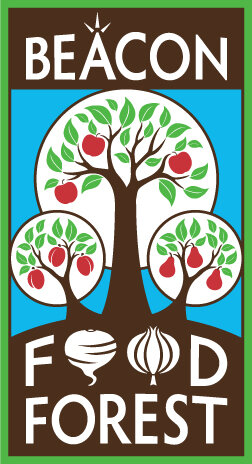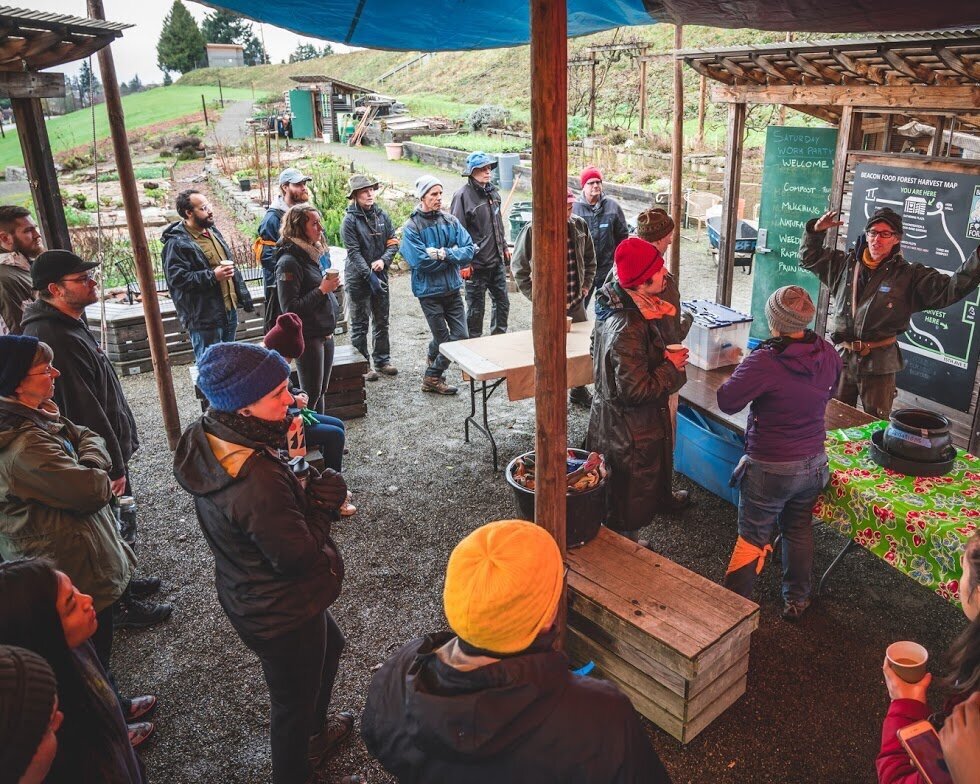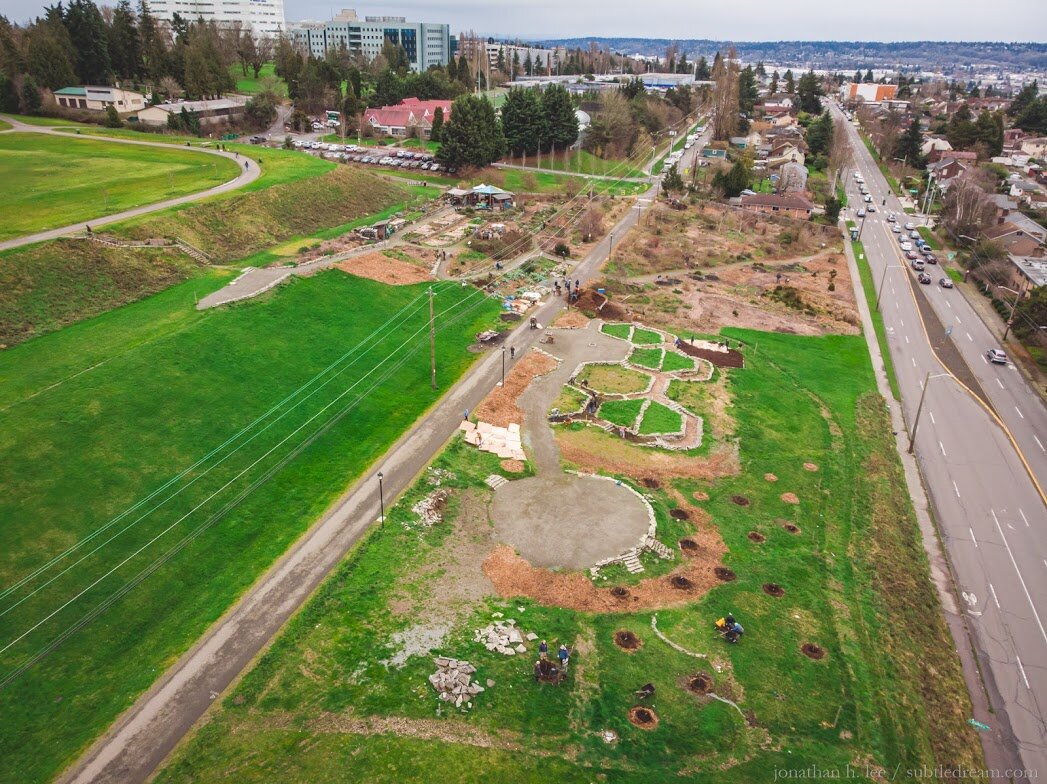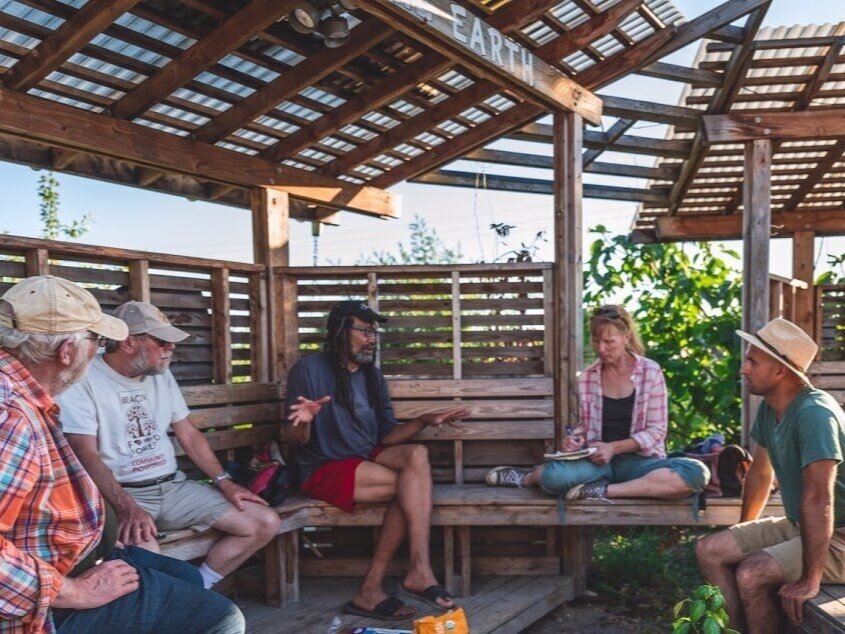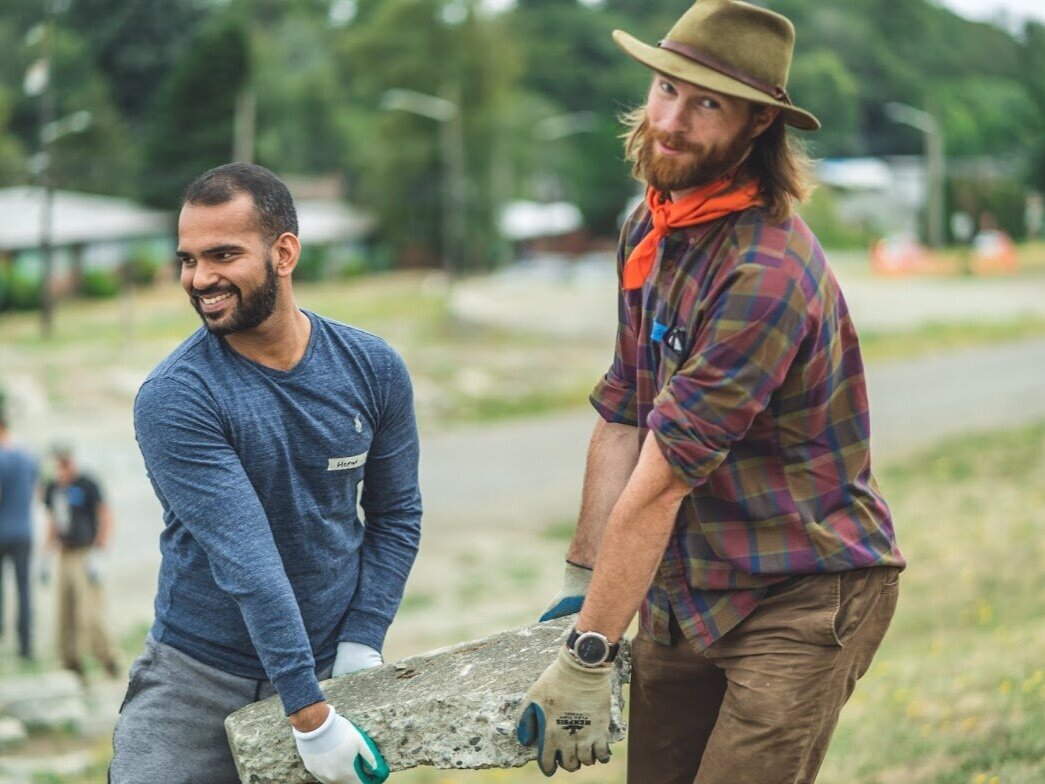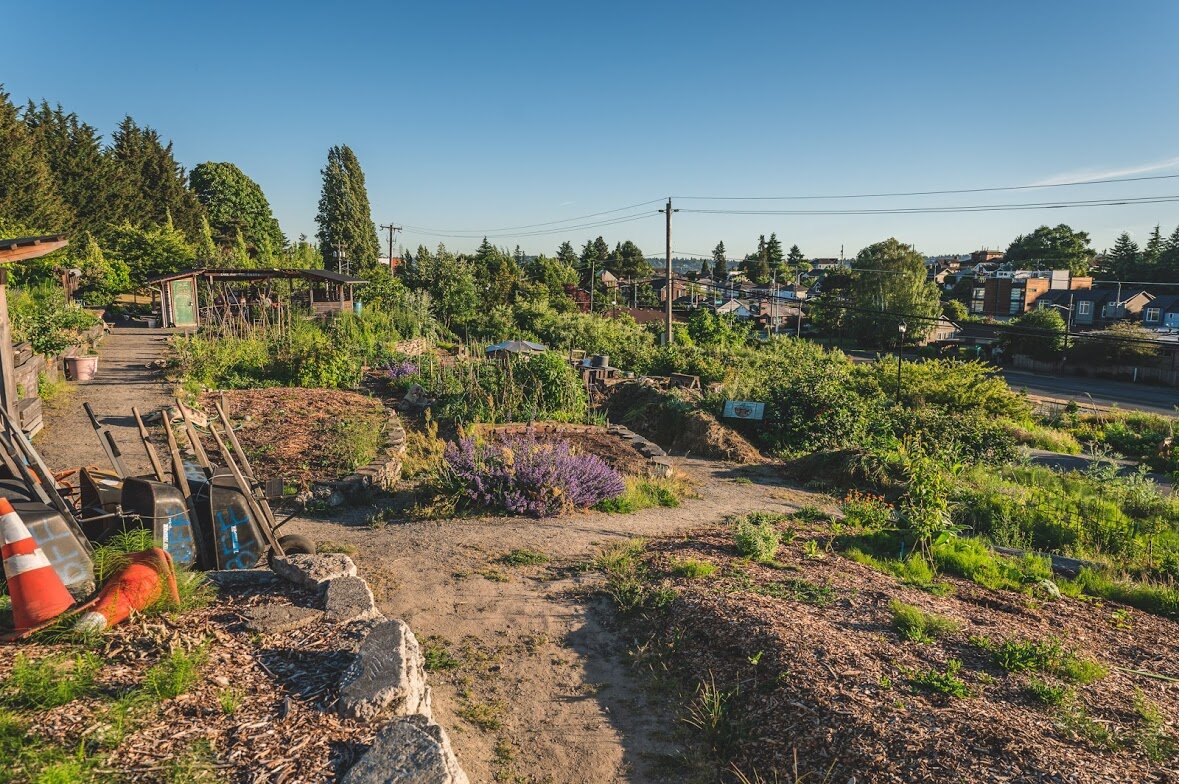
About us
Beacon Food Forest is a grassroots project created and powered by volunteers
Our vision is a world where every community participates in creating local food ecosystems. Beacon Food Forest is a demonstration site and a learning community that reimagines what urban green spaces can offer.
Volunteers turned a swath of grass into a vibrant, thriving ecosystem that now provides fresh produce, uplifting beauty, pollinator habitat, healthy soils, climate change mitigation, storm water filtration, educational opportunities, and - perhaps most importantly - a community where everyone is welcome to be, participate, learn and teach.
Our motto: Public food on public land
Beacon Food Forest began as a crazy dream. In 2009, four friends from Beacon Hill who were studying food forestry created a design envisioning how the 7 acre plot of grass west of Jefferson Park could be transformed into a diverse ecosystem that would provide fresh, healthy, local food to neighbors.
They presented their idea to the City of Seattle whose Department of Public Utilities owns the site. Over many months of negotiations with the City, design collaboration with professional landscape architects, and public meetings to get community input on layout and selection of plants, the final plan was created.
The food forest integrates food plants into a self-sustaining, semi-natural ecosystem
Beacon Food Forest’s design process, layout and stewardship are based on the design principles and ethics of food forestry.
In September 2012, the first trees were planted. Since then, hundreds of volunteers have contributed to turning the first 1.75 acres into food forest, a giving garden, and P-Patch plots.
In 2019 we broke ground for Phase 2, adding another 1.5 acres of growing and learning space to the site.
In 2020, we intensified our vegetable production so that we could donate to food banks in response to increased food insecurity in our community due to the economic fallout of the COVID-19 pandemic.
Open harvest
Most of the Beacon Food Forest is an open harvest site (except for our designated food bank plot and City of Seattle P-Patches). This means that we allow anyone to forage from the site freely.
By extending our trust to strangers, they enter into our community agreement to take only what you need and always leave some for others. This model has been very successful so far.
Nearly all the produce gets harvested, eliminating food waste as well as fallen fruit that could attract pests. We have not observed anyone “wiping out” a harvest.
Partnership with City of Seattle
Beacon Food Forest is located on a Seattle Public Utilities water reservoir site. We pay rent for part of the site, in order to be allowed to charge for classes and pay our instructors.
Our main partner agency is the City’s Department of Neighborhoods (DON). They run the P-Patch community gardens that are located on the property and provide water for the entire site. They’ve also helped us translate our signs into Beacon Hill’s top five languages. Thank you, DON!
Volunteer power
Beacon Food Forest’s fluid leadership team consists of approximately 15 old and new core volunteers. Non-hierarchical committees meet regularly to organize the activities on site.
Our culture of peer-to-peer learning supports new volunteers who are motivated to quickly become project leaders. In addition, about 50 regular volunteers help maintain the site. They represent many age groups, ethnicities, and physical abilities. Many are residents of South Seattle.
Our funding
Beacon Food Forest relies on funding from grants and donations. Please consider supporting our community space with a financial gift.
We also appreciate in-kind donations of gardening and building supplies, and food and coffee to fuel our work party volunteers. Contact us if you’d like to donate materials.
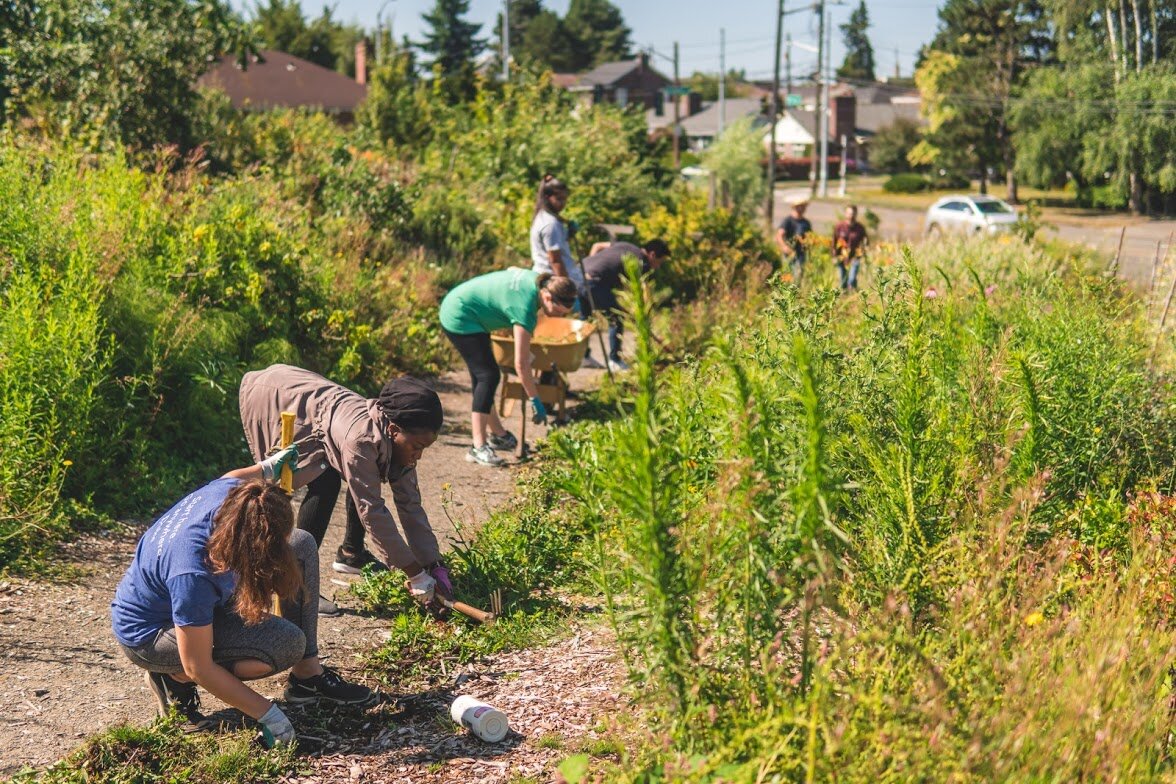
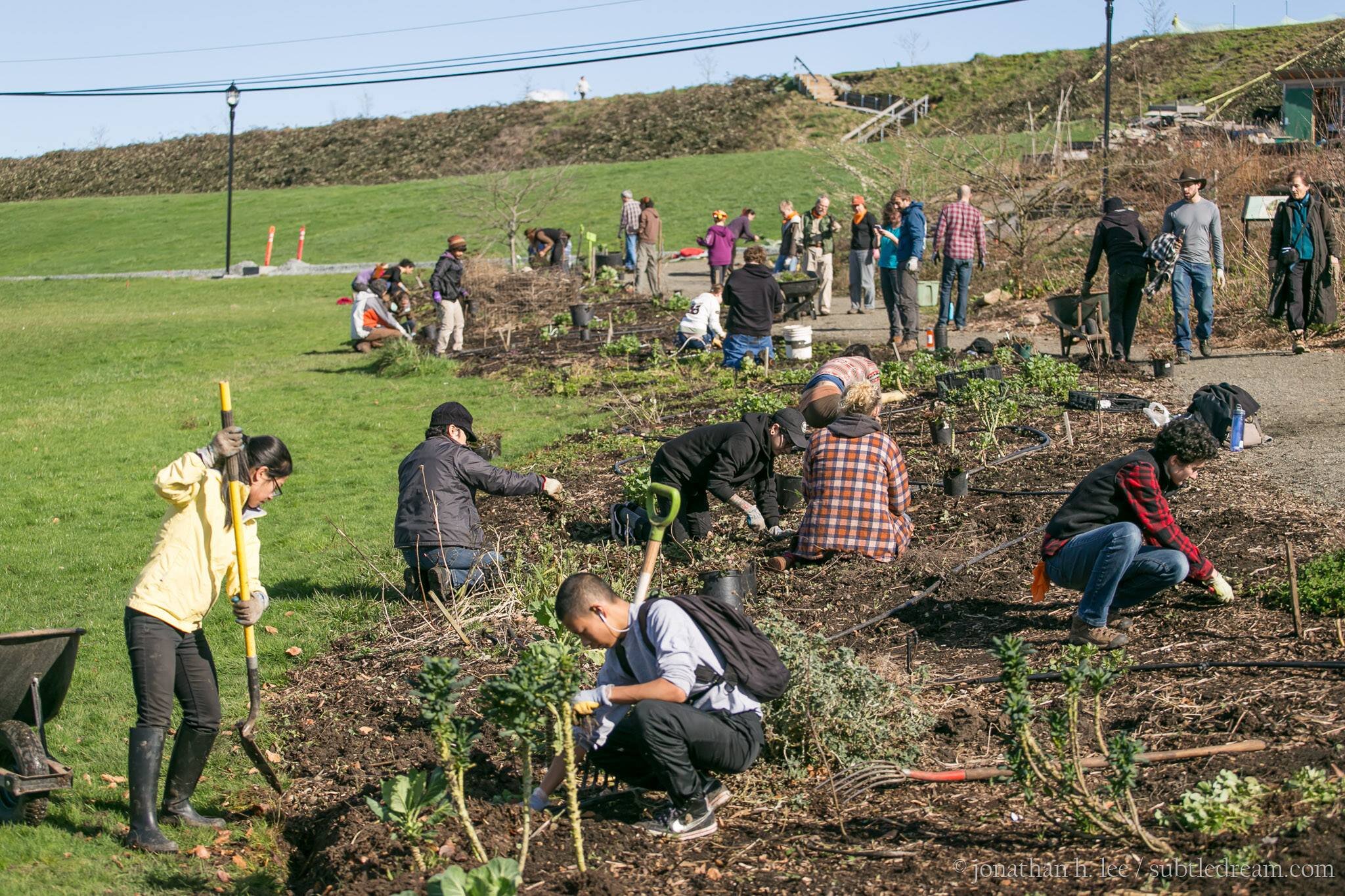
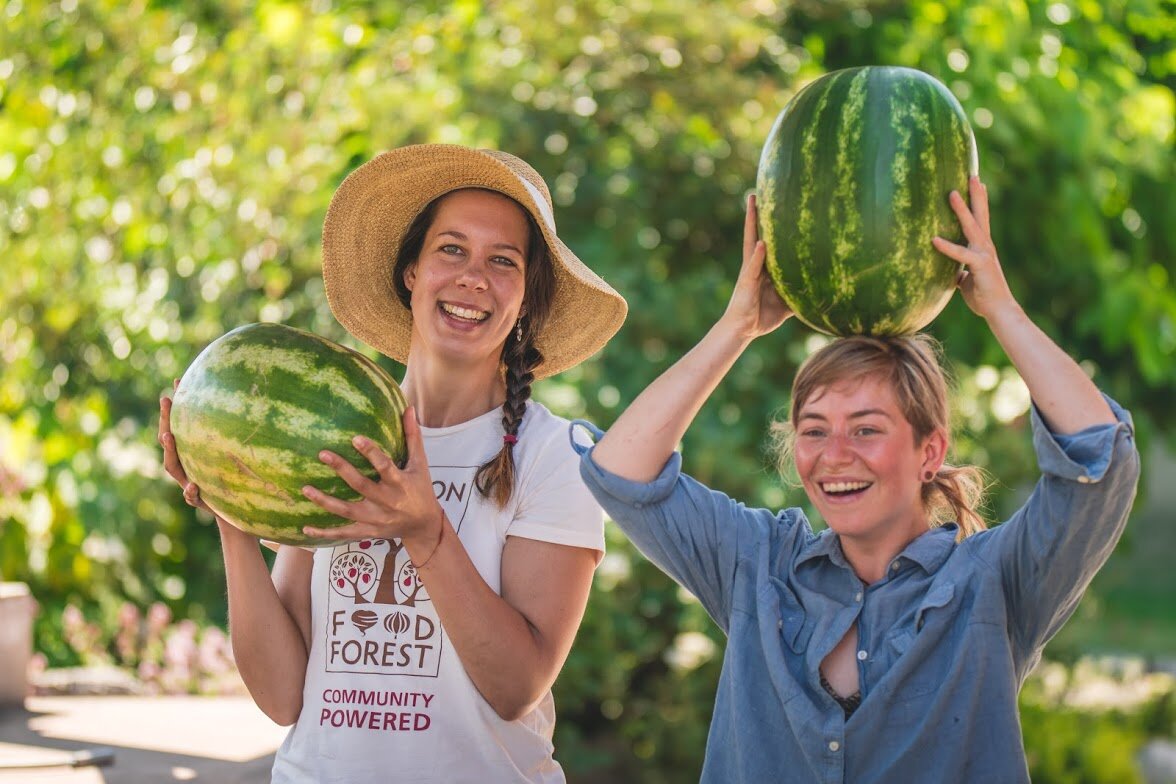
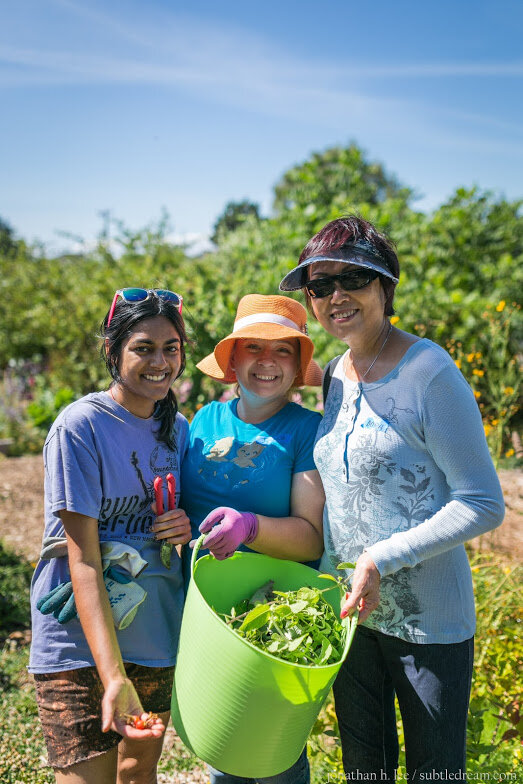
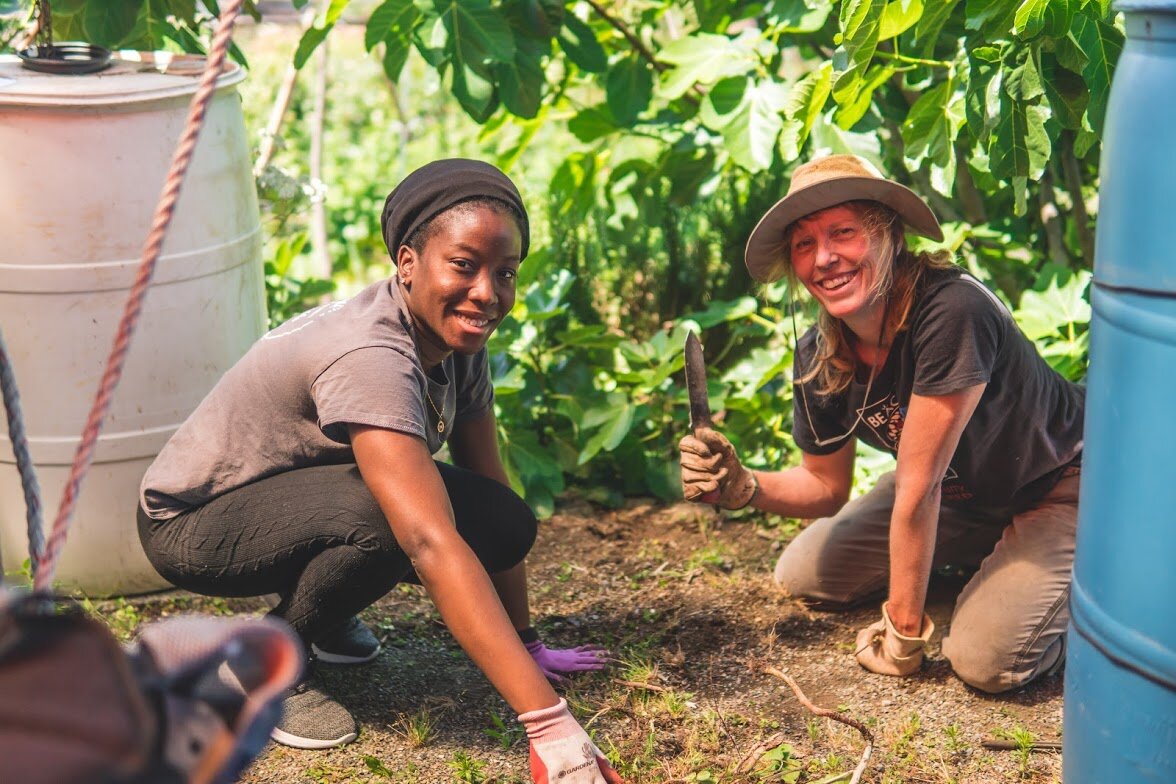

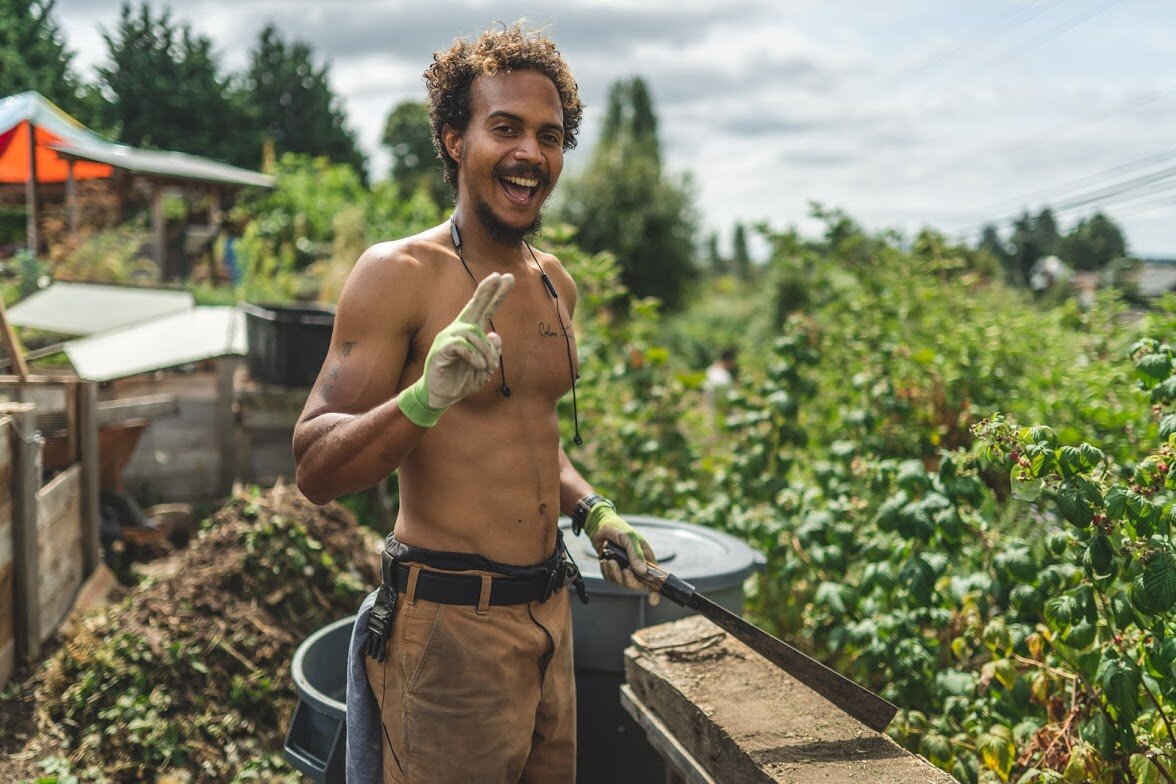
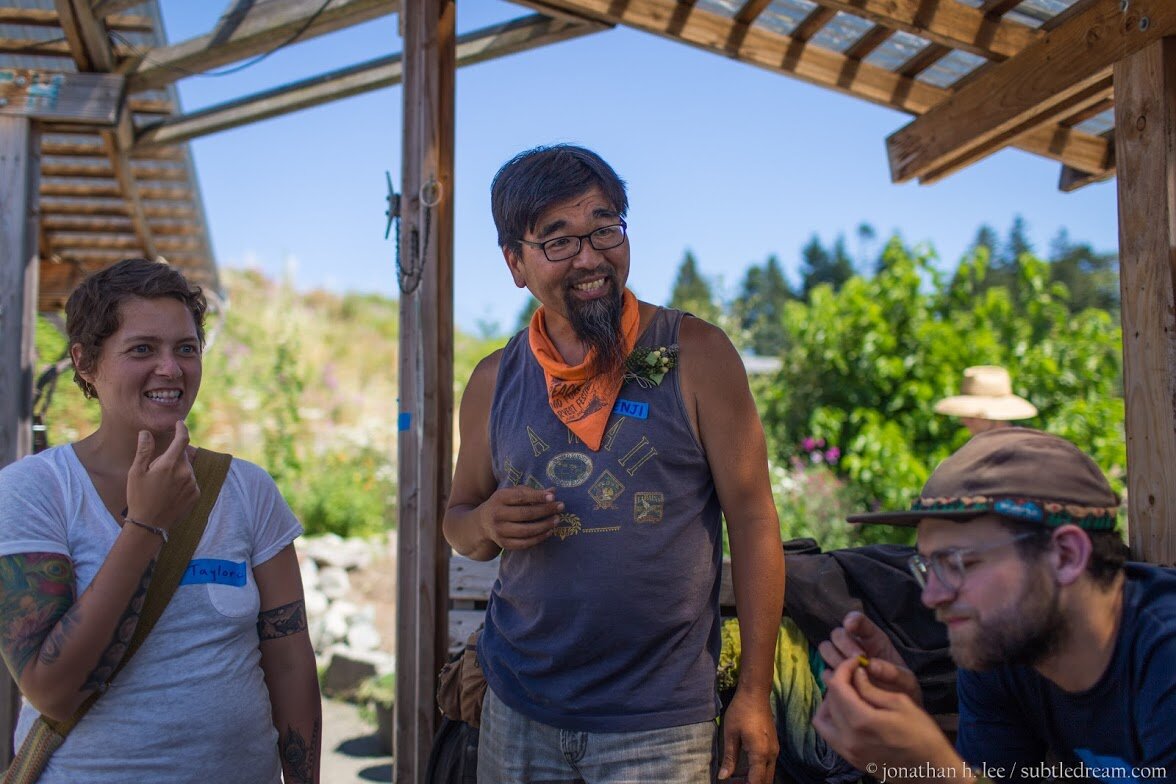
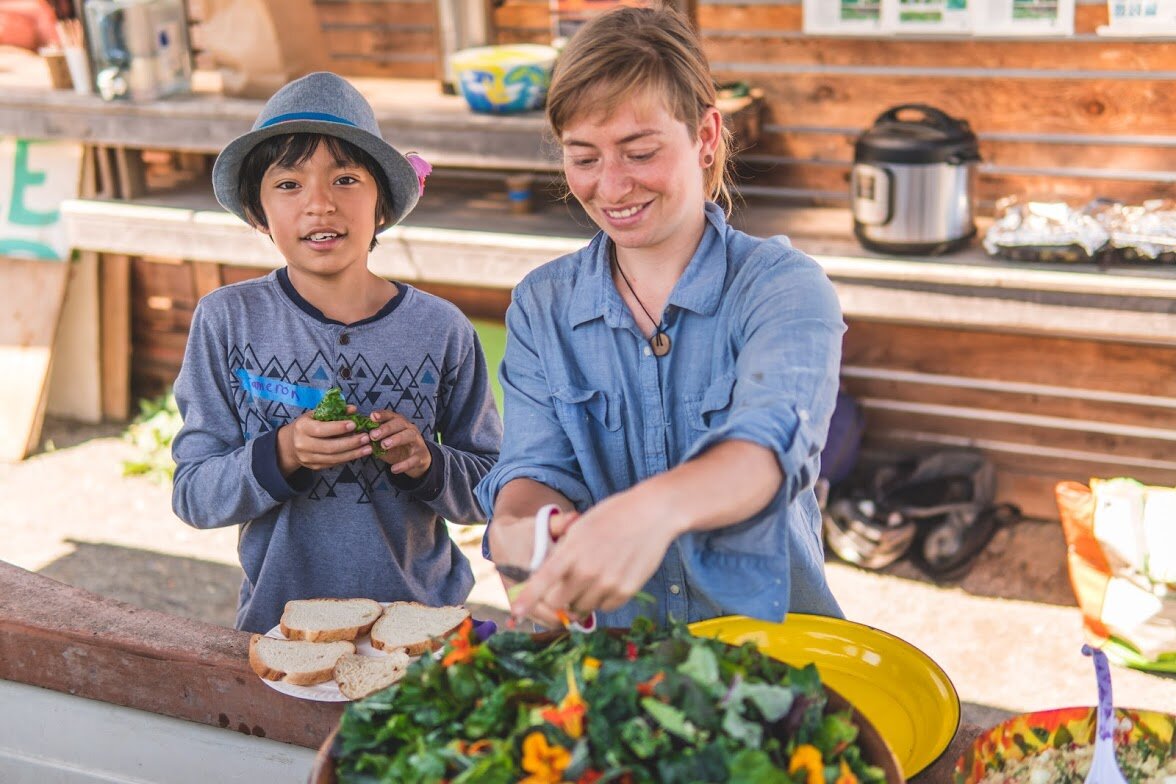
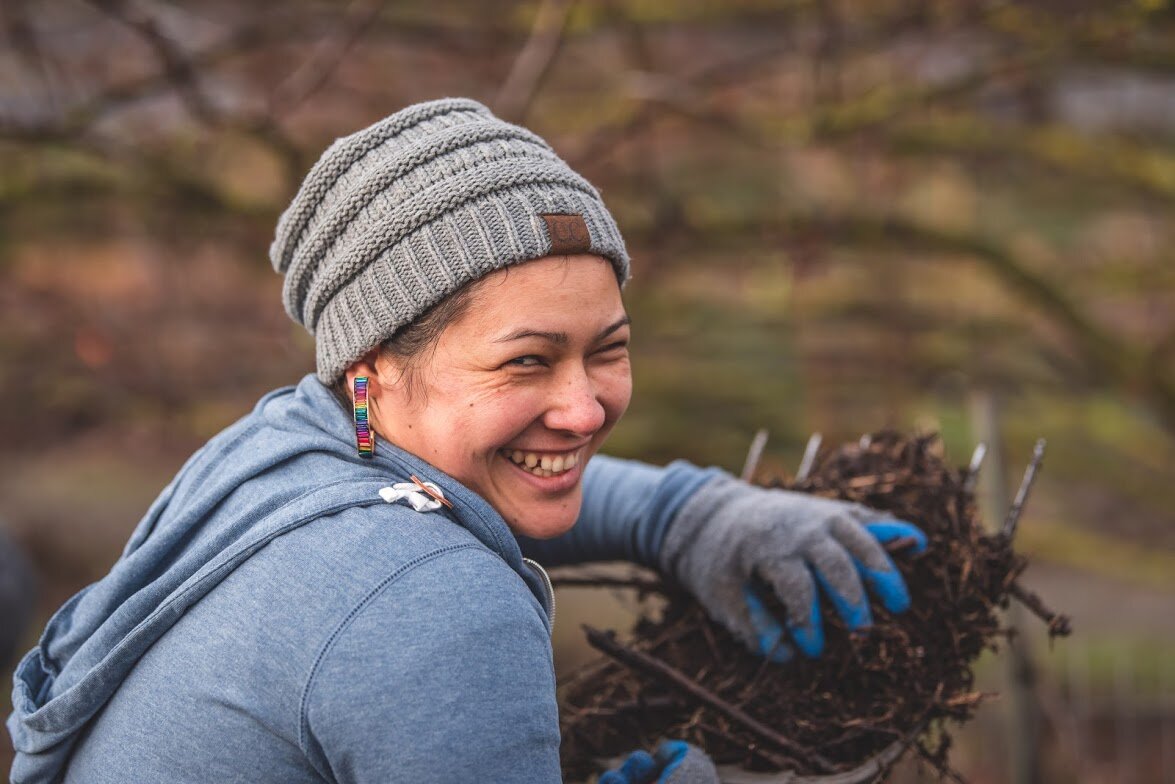
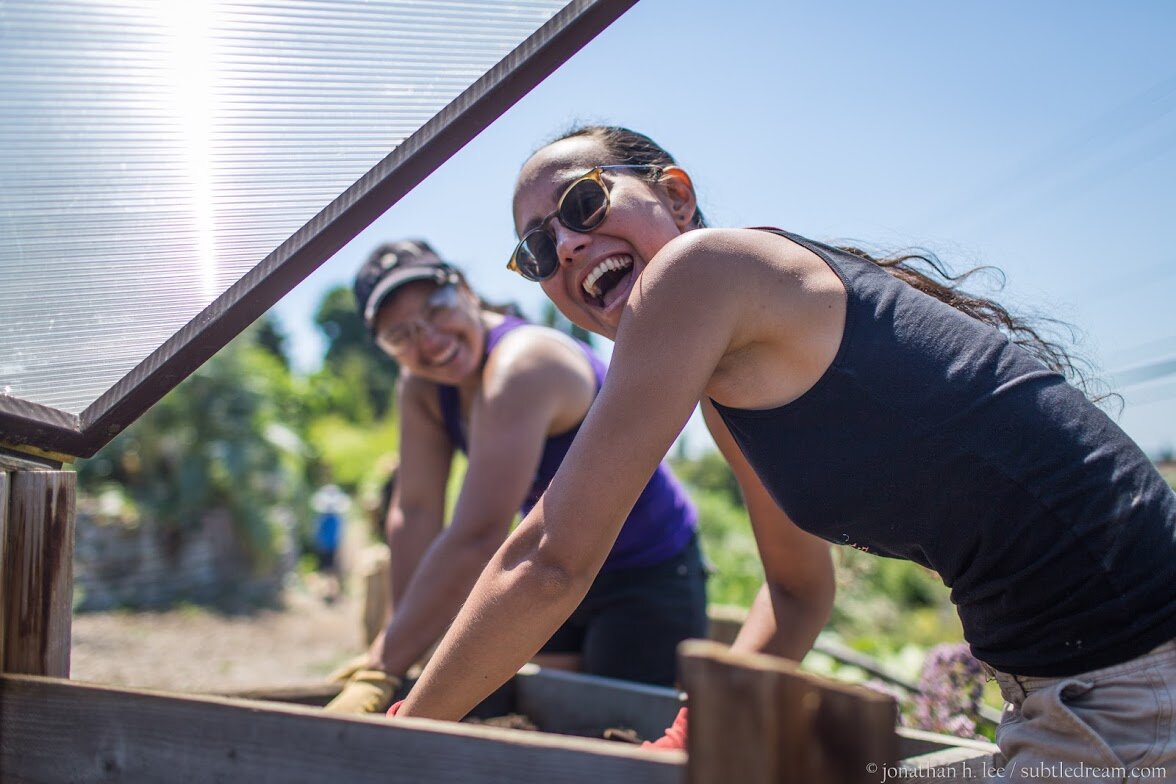
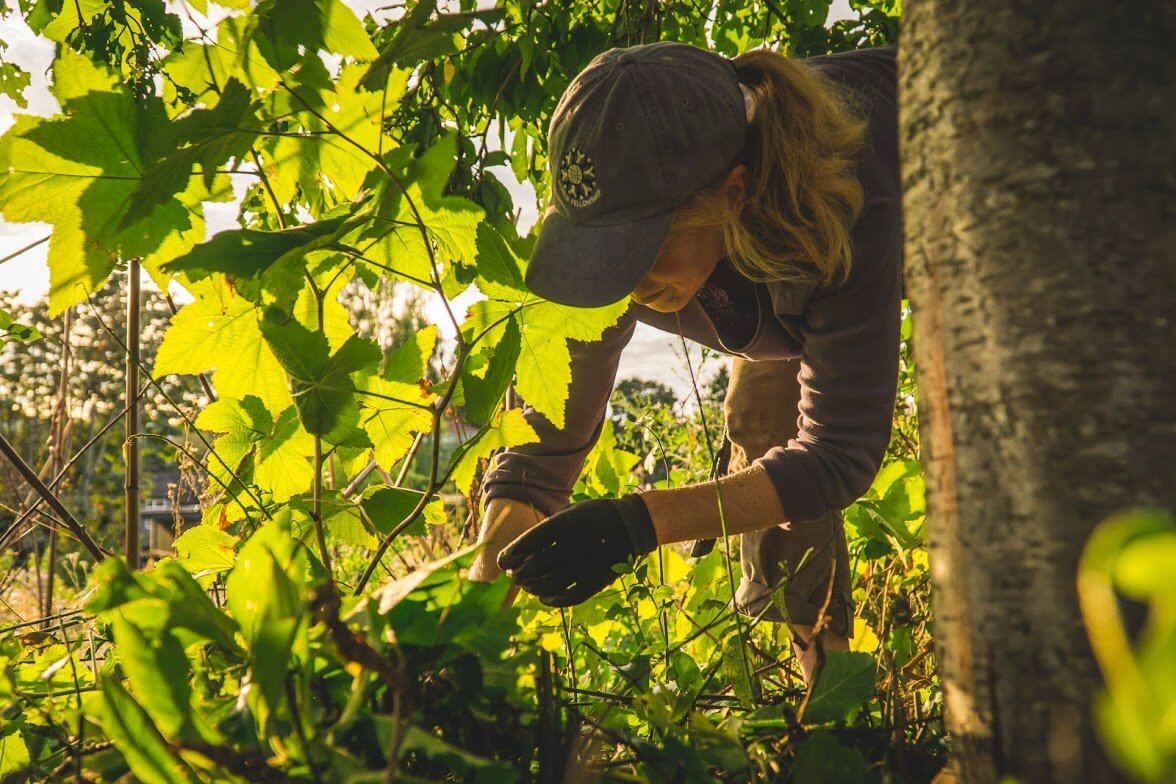
Header and gallery photos by Jonathan H. Lee/subtledream.com
